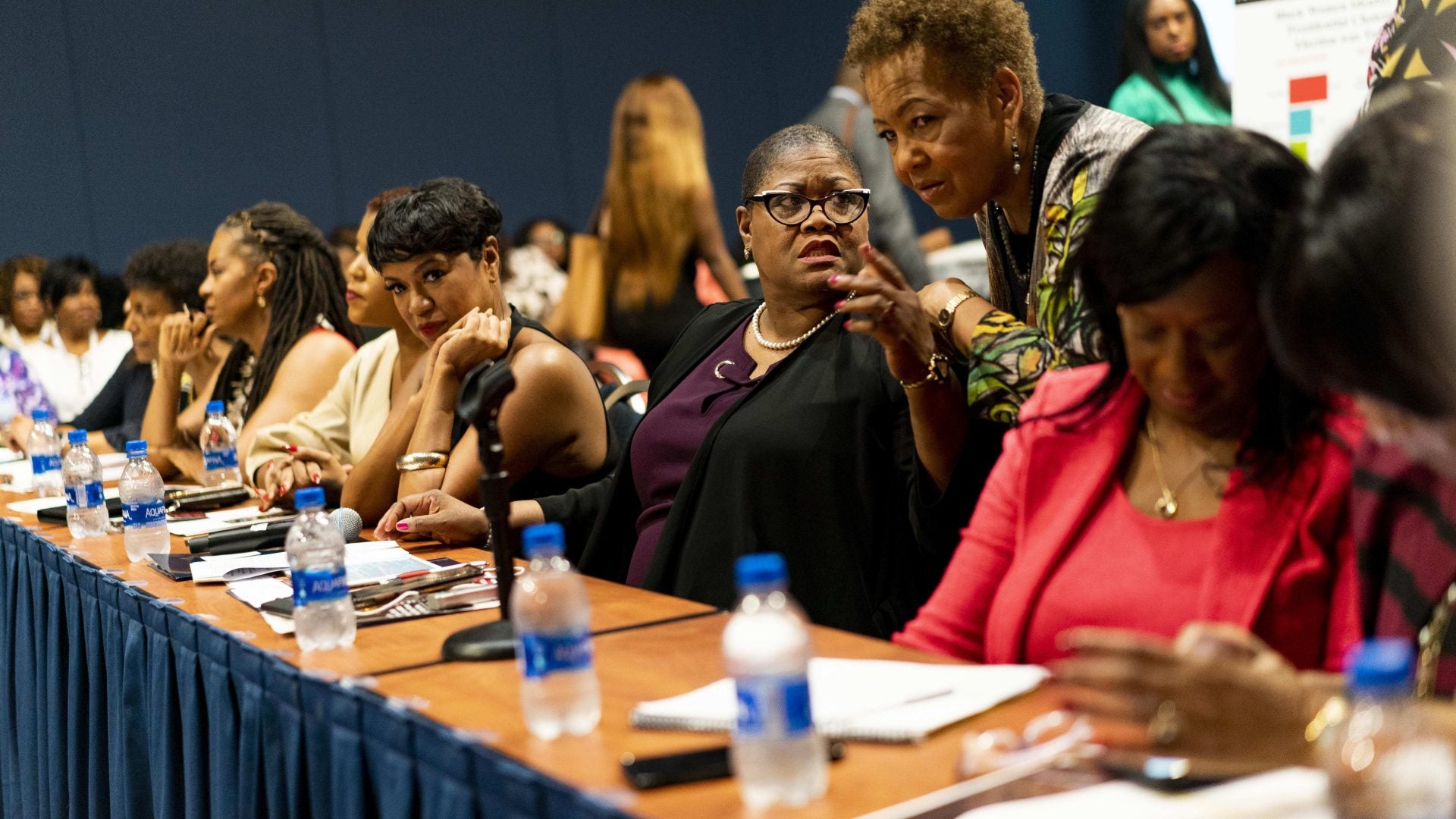
An intergenerational collective of Black women leaders recently hosted its latest ‘Power Table Talk’ to discuss two of the most pressing issues in the United States at this time: voting rights and police reform.
The monthly talk held by the Black Women’s Roundtable (BWR) brought together some of the nation’s most influential Black women leaders from across the spectrum of politics, philanthropy, business, civil rights and social justice activism.
“This is really an all-hands-on-deck moment. This is history. This is critically important for us to stand up…our voices are important,” said Makani Themba, Chief Strategist at Higher Ground Change Strategies.
During a two-part virtual conversation on June 11, they shared diverse perspectives on the need for voting rights and police reform on a federal level in order to address issues of voter suppression and police-involved killings which disproportionately impact Black communities and other people of color communities across the country.
“It’s important for Black women to leverage our vote, our leadership and our voices in the current debate taking place in the 117th Congress on voting rights and police reform ,” said Melanie L.Campbell, President & CEO, National Coalition on Black Civic Participation (NCBCP).
Some of the other notable women featured during the virtual roundtable included Joi Chaney, Executive Director and Senior VP, Policy and Advocacy of the National Urban League; Congresswoman Karen Bass; and Dr. Johnnetta Cole, President & National Board Chair of the National Council of Negro Women, which co-hosted the event.
The Black Women’s Roundtable, a signature program of NCBCP and one of the largest networks of women focused on using civic engagement to improve the lives of Black women and their communities, comes at a very critical time.
There are several important bills currently being considered in Congress including the George Floyd Justice in Policing Act to address police reform as well as the For the People Act and the John Lewis Voting Rights Advancement Act, to address voting rights reform.
“These bills are critical to expanding the right to vote, and to protecting the right to vote, and we really need the Senate to move these bills and move them quickly so that people will not be disenfranchised,” said Lisa Cylar Barrett, Director of Policy at the NAACP Legal Defense and Educational Fund.
The For the People Act also known as S.1. is legislation that would address issues of voter access, election integrity, election security, political spending and ethics. The act would help protect against efforts to restrict voting at the state level, which often disproportionately affects voters of color.
In addition, the John Lewis Voting Rights Advancement Act, also known as H.R. 4, would restore a key component of the Voting Rights Act of 1965 struck down by the Supreme Court in 2013. That provision required certain jurisdictions with a history of discriminatory voting practices receive approval from the federal government before making changes to their voting rules.
For police reform, The George Floyd Justice in Policing Act would ban chokeholds, carotid holds and “no-knock” search warrants at the federal level. It would also tie federal funding for state and local law enforcement to officials banning those practices. It would also make it easier to prosecute police officers and create a national database of police misconduct.
The bill is named for Floyd, who died after convicted former Minneapolis police officer Derek Chauvin pressed his knee onto Floyd’s neck for more than nine minutes.
“It took, unfortunately, George Floyd being tortured to death for the entire world to see for that to be a moment when the United States population finally said, there is a problem with policing,” said Bass, the California Democrat who first introduced the House bill and is leading efforts to get it passed.
“We have hit a bump in the road, and I am hopeful that within the next two weeks, we will come to some type of agreement and the bill will pass the Senate,” she said imploring everyone listening to be proactive and reach out to their congressional leaders.
The Justice in Policing Act was approved by the Democratic-led House in March however it has yet to receive a vote in the Senate, where at least 10 Republicans are needed for passage due to the 60-vote filibuster rule.
“We’ve gotten to a groundswell where we are in striking distance of some kind of generational change…but it’s not the end. There’s a lot more work to be done,” said Joi Chaney.
She along with all of the speakers during this convening of the Black Women’s Roundtable encouraged Black women across the country to continue to be proactive and engage in these major efforts to pass sweeping voting and police reforms at the federal level.
“We have to keep pushing, we have to encourage our allies to keep pushing, those on the ground who are our neighbors and our friends and our family members, but also those who are in corporate America where we spend our dollars,” Chaney said.
These forums focused specifically on Black women from varying backgrounds are meant to strategize as a means to expand and strengthen the power of Black women’s leadership and move forward policy focused on addressing their needs and the needs of their communities.
